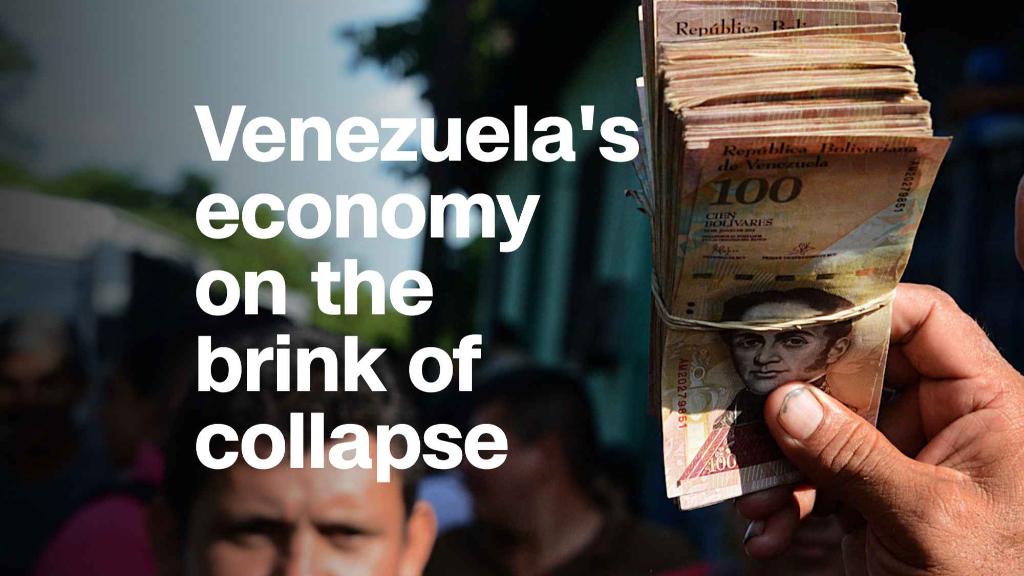
Venezuelan leaders face an unprecedented economic crisis, and their currency is almost worthless.
So they created a new one.
Venezuela's government on Tuesday launched the world's first sovereign cryptocurrency, the petro, to help its collapsing economy. Presale began with one token going for $60. The government is trying to sell $2.3 billion worth.
Theoretically, the petro is backed by Venezuela's reserves of precious metals like gold and crude oil. The country has the largest crude oil reserves in the world. The petro does not give investors any ownership stake in Venezuelan oil.
Some investors say it's innovative nonetheless, and could draw investment from Middle East, Europe and Asia. But many economists argue that the petro won't solve Venezuela's many problems, including food shortages, plummeting oil production and a mass exodus.
Venezuela owes bondholders, oil companies, airlines, China, Russia and other creditors about $141 billion, according to a report last fall by Moody's Investor Service. The government has been in default on some of its debt since November.
Related: Venezuela's cash crisis: You can't get $1 out of the bank
President Nicolas Maduro blames the United States and Western institutions for waging "economic war" against Venezuela. President Trump and several other Western leaders call Maduro's regime a dictatorship.
It's unclear how much demand the petro will draw. The U.S. Treasury Department warned in January that investors who buy the cryptocurrency "may be exposed to U.S. sanctions risk."
In August, the Trump administration hit the Maduro regime with financial sanctions that prevent any bondholders with business in the United States from buying new Venezuelan government bonds.
It's also unclear how investors will be able to sell the petro. For now, investors have to buy it with other world currencies. They can't buy it with Venezuela's official currency, the bolivar, which is worth nearly nothing because of hyperinflation.
Related: 'Death spiral': 4,000% inflation in Venezuela
The United States, Europe and other global critics of Maduro may increase the pressure soon to force him to leave or adopt democratic reforms. Maduro's administration has called for a presidential election on April 22, but no opposition leaders are allowed to participate.
Secretary of State Rex Tillerson said on a recent trip to Latin America that the United States is considering a ban on Venezuelan oil, the only viable source of income for Maduro's government.


